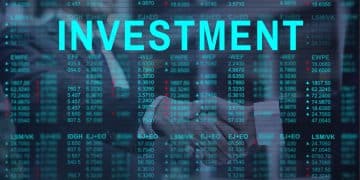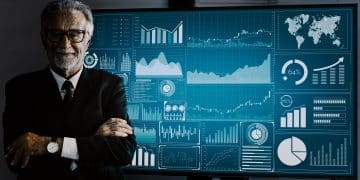Complete Guide: The Future of the Real Estate Market in Dubai for 2025
The future of the real estate market in Dubai is shaping up to be one of innovation, sustainability, and global investment appeal. As the city continues its rapid development, 2025 promises to be a pivotal year filled with new opportunities and challenges for investors, developers, and residents alike.
Analysis of the Exponential Growth of the Market in Recent Years
In recent years, the real estate market in Dubai has experienced exponential growth. This growth can be attributed to a number of factors, including a diversified economy and a policy of attracting foreign investments. The favorable business environment, along with tax incentives, has made Dubai an attractive destination for international investors. Consequently, the demand for residential and commercial properties has increased significantly.
Impact of Expo 2020 on the Real Estate Sector
Expo 2020 played a crucial role in boosting Dubai’s real estate market. The event attracted millions of visitors and placed Dubai in the global spotlight. As a result, there was an increase in infrastructure development and the construction of new real estate projects to meet demand. The legacy of Expo 2020 continues, with many large-scale projects initiated during the event still underway, attracting continued attention and investments.
Main Economic Indicators Influencing the Market
Several economic indicators have a substantial influence on Dubai’s real estate market:
GDP and Economic Growth: GDP growth is one of the main indicators, reflecting the overall health of the economy and directly impacting the real estate sector.
Interest Rates: Interest rates affect financing costs and, consequently, access to loans and mortgages.
Occupancy Rate: High occupancy rates signal strong demand for properties, while lower occupancy rates indicate a looser market.
These factors, combined with a regulatory vision that supports transparency and the attraction of foreign capital, provide a conducive environment for the continued growth of Dubai’s real estate market.
The analysis of these variables gives us a clear view of the current situation and the future potential of the real estate market, highlighting its adaptability and sustainable growth capacity.
Technological Trends in the Real Estate Sector
Implementation of Blockchain Technologies in Real Estate Transactions 
Blockchain technology has revolutionized several sectors, including real estate. In Dubai, its implementation in real estate transactions aims to provide greater transparency, security, and efficiency. Blockchain-based transactions eliminate intermediaries, reducing costs and processing time. Furthermore, the technology helps prevent fraud, as each step of the transaction is recorded in an immutable and public ledger. These advantages are attracting investors and buyers seeking more reliable and faster processes.
Growth of Proptech and Its Influence on the Market
Proptech, or technology startups focused on the real estate sector, have been gaining prominence in Dubai. These companies use innovative solutions such as data analysis, artificial intelligence, and augmented reality to transform how properties are bought, sold, and managed. For example, online platforms allow virtual tours of properties, while market analysis tools provide detailed insights into price trends and demand. The growth of proptech is expanding access to information and facilitating consumer decision-making.
Development of Smart Home Projects and Intelligent Buildings
Dubai is at the forefront of the development of smart homes and intelligent buildings. These projects incorporate advanced technologies such as home automation, energy management systems, and IoT (Internet of Things) sensors. Smart homes offer greater comfort, security, and energy efficiency to residents, with connected devices that allow remote control of lighting, climate, and security. In commercial buildings, the implementation of these technologies results in greater sustainability, reduced operational costs, and improved user experience.
With the growing need for innovation and efficiency, these technological trends are redefining the real estate market in Dubai.
Sustainability and Green Development
Sustainable Initiatives in New Developments
Dubai has stood out globally for its sustainable initiatives in new real estate developments. The city is heavily investing in green technologies and the construction of eco-friendly buildings aimed at reducing energy consumption, minimizing waste, and promoting a healthier environment for residents. A notable example is “The Sustainable City,” a residential project that uses solar energy, water recycling, and sustainable building materials to create a fully self-sufficient neighborhood.
Environmental Regulations and Their Impact on Future Projects
Environmental regulations in Dubai have become more stringent over the years, directly impacting future projects in the real estate sector. The implementation of international green building standards, such as LEED (Leadership in Energy and Environmental Design) certification, is becoming a mandatory standard for new developments. These regulations encourage the use of eco-friendly materials, energy efficiency, and carbon emission reduction, ensuring that new projects are designed and built with sustainability in mind.
Growing Demand for Eco-Friendly Buildings
Environmental awareness is growing among consumers and investors in Dubai, resulting in increasing demand for eco-friendly buildings. Buyers are increasingly willing to invest in properties that offer sustainable solutions, such as solar power systems, efficient thermal insulation, and waste recycling facilities. This movement not only meets consumer expectations but also contributes to environmental preservation and promotes a higher quality of life for residents.
As Dubai continues to explore new frontiers in sustainability, investment opportunities in green real estate become increasingly attractive. This promising scenario highlights the importance of keeping up with technological trends and environmental regulations to stay ahead in Dubai’s competitive real estate market.
Investment Opportunities for 2025
Promising Areas for Investment in Dubai
Dubai remains an attractive destination for real estate investors due to its advanced infrastructure and business-friendly climate. Promising areas include the developing residential districts along Expo 2020, such as Dubai South, which offers a mix of business opportunities and high-quality housing. Additionally, Downtown Dubai and Dubai Marina continue to attract investments due to their prime locations and strong demand for premium properties.
New Investment and Financing Modalities
Dubai’s real estate market is adapting to new investment trends. Emerging modalities include real estate crowdfunding, where small investors can participate in larger projects, and flexible and adaptable leasing contracts. These methods not only democratize market access but also diversify risk. Innovative financing methods, such as reverse mortgages and real estate investment trusts (REITs), are gaining ground and offer more predictable returns in an evolving market.
Expected Return on Investment for Different Segments
Return on investment (ROI) varies by segment, but the trend is positive. Luxury residential properties in central areas have shown high appreciation rates, while commercial properties remain solid in terms of rental income. The growing demand for avant-garde and eco-friendly spaces also promises significant returns. The infrastructure associated with Expo 2020 contributed to the appreciation of nearby properties. Investors should consider segments focused on sustainability, which offer not only good ROI but also a positive environmental impact.
Dubai offers a diverse range of investment opportunities, with technological innovation and sustainability setting new standards for the future of the region’s real estate market.
Market Challenges and Risks
Analysis of Major Economic and Regulatory Challenges
In Dubai’s real estate market, one of the main economic challenges is the dependence on international capital flows. With global economic instability, investors may become more cautious, reducing investment inflow into the region. In addition, interest rate fluctuations and changes in monetary policies in key markets such as the United States and the European Union can impact the attractiveness of real estate investments in Dubai.
From a regulatory perspective, one of the biggest difficulties is adapting to new regulations aimed at increasing transparency and preventing money laundering. Implementing these regulations requires significant investments in new technologies and compliance, which may pose a hurdle for some companies in the sector.
Impact of Global Trends on the Local Market
Dubai’s real estate market is not immune to global trends. The growing demand for sustainability may pressure developers to adopt greener and more energy-efficient practices. While this is beneficial in the long run, initial costs may be high.
Another factor is the changing preferences of consumers, who are increasingly inclined to seek residences that offer sustainable practices and advanced technologies. Additionally, currency fluctuations can affect the value of real estate investments, making financial return forecasting more complex.
Risk Mitigation Strategies
To mitigate these challenges, it is imperative that real estate investors and developers adopt some strategies:
Diversification: Investing in different types of properties and geographies can reduce the risk associated with market fluctuations.
Technology and Innovation: Adopting technologies such as blockchain and proptech solutions can increase efficiency and transparency, attracting more investors.
Strategic Partnerships: Collaborating with tech and financial companies can facilitate access to new investments and resources.
Proactive strategies like these can not only help mitigate risks but also turn challenges into growth opportunities.
Outlook and Forecasts for 2025
Market Growth Projections
Dubai’s real estate market has shown robust growth in recent years, and forecasts indicate that this trend will continue through 2025. The region’s economic dynamism is a key factor, with strong policies to encourage foreign investment and large-scale infrastructure projects that continue to attract international capital. Economic diversification, combined with constant urban modernization, makes Dubai a safe harbor for resilient investments.
Expected Changes in Buyer and Investor Profiles
The base of investors and buyers in Dubai is changing. Millennials and Gen Z investors, who are more tech-savvy and eco-conscious, are beginning to dominate the scene. They value sustainable properties, smart projects, and good connectivity. Additionally, there is a rise in interest from institutional investors such as pension funds and private equity firms, which are seeking to diversify their portfolios and find Dubai an attractive market.
New Developments and Planned Projects
Dubai authorities have announced a series of new projects that promise to transform the city’s skyline. Areas such as Dubai Harbour, District 2020 (which repurposes the infrastructure from Expo 2020), and new residential and commercial districts are under development. These projects present not only new housing opportunities but also encourage continuous economic growth and investment in an increasingly advanced urban environment. The development of green buildings and sustainable projects also continues to be a priority, aligning with stricter environmental policies and the growing demand for eco-friendly constructions.
This scenario of innovation and growth prepares Dubai’s real estate market for a dynamic future full of opportunities.
To read more content on the subject see here





